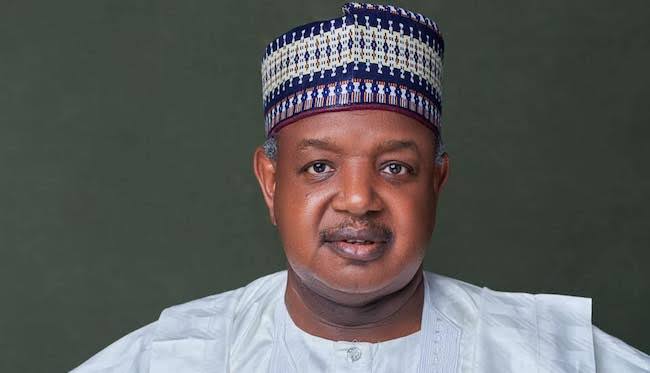
FG Simplifying Investment Process to Attract Investors – Bagudu
The federal government is fine-tuning regulations that will enhance Nigeria’s status as a preferred destination for foreign investors.
Minister of Budget and Economic Planning, Senator Abubakar Atiku Bagudu, at a media parley yesterday in Lagos, said the government plans to further simplify investment process and improve ease of doing business to make the country more attractive to foreign investors.
This comes as the government expects revenue-to-Gross Domestic Product (GDP), which stood at some nine per cent in 2023, to increase to 18 per cent next year.
The increase in government’s revenue capacity, Bagudu noted, underlined the gains of ongoing economic reforms, which have led to improvement in operational efficiency of government’s business.
Against the background of increased foreign investment inflows, Bagudu said additional would provide more clarity for investors and reassure them that Nigeria is open for business.
According to him, as part of its commitment to long-term economic growth and development, the President Bola Tinubu’s administration remains focused on creating an environment conducive to attracting foreign capital.
He highlighted that it is crucial to provide greater certainty for foreign investors regarding key legislative provisions and to diversify the economy while supporting private sector growth.
He noted positive reviews on Nigeria’s macroeconomic outlook by an array of domestic and foreign economic and investment think-tanks, citing the latest report from Chatham House, which ranked Nigeria as the most competitive economy in Africa.
He outlined that with sustained growth in the economy, stability in foreign exchange (forex), improved security, declining inflation and increased productivity in the oil and gas sector, the tough decisions taken by the government has turned the economy in the right direction.
He said the expansionary 2025 budget was a deliberate strategy to consolidate the economic gains and spur further stability and growth.
“We are not where we ought to be but certainly we have turned into right direction. The 2025 budget is a follow-up to that philosophy. It has elements that will further macroeconomic stability, security, drive infrastructure growth, restore innovation in the economy and invest in human capital. The budget is designed to accomplish these objectives,” Bagudu said.
He pointed out that the top-up of N5.2 trillion, which raised the 2025 budget from N49 trillion to N54.2 trillion, was a deliberate strategy to further drive key economic sectors, especially agriculture, solid mineral and consumer credits.
He explained that N1.5 trillion naira is being provided to recapitalise the Bank of Agriculture, another N500 billion to provide additional capital to Bank of Industry, N1 trillion to support the solid mineral sector and other additional investments in consumer goods and diversified energy.
According to him, initiatives such consumer credit, mortgage financing, student loans, National Agricultural Development Fund, funding of the new livestock ministry and clean energy transition would receive more fillips during the year.
He said Nigerians were already appreciating the gains of key reforms so far implemented by the government, assuring that President Tinubu greatly appreciates Nigerians’ supports for his reforms.
He reassured on the commitment of the government to run a disciplined economic strategy noting that the federal government has adhered to the legal borrowing limit of five per cent from the Central Bank of Nigeria (CBN) despite domestic and global challenges.
He allayed concerns over the country’s debt burden and reaffirmed government’s commitment to not exceeding its legal borrowing limits, particularly from domestic sources.
He said government would continue to explore innovative and diversified financing approach that optimize the greatest benefits for the Nigerian economy.
Bagudu said in the option of asset sales, the government would only proceed when market conditions are optimal to maximise value.
He expressed optimism that ongoing reforms would continue to positively impact the nation’s oil production, pointing out although the country had surpassed the oil production target of 2.1 million barrels per day, security remained a key challenge, with pipeline vandalism and other infrastructure concerns limiting output.
On oil prices, which recently dipped below $70 per barrel, Bagudu reassured Nigerians that while external pressure to cut oil production was rising, the government believed in the resilience of global demand.
He pointed out that despite a temporary decline, oil prices are expected to stabilise over the long term, with little immediate impact on Nigeria’s oil revenue assumptions for the 2025 budget.
“We are happy that Nigerians supported the choices that we took. We are confident that the choices have turned our economy into the right direction,” Bagudu said.
